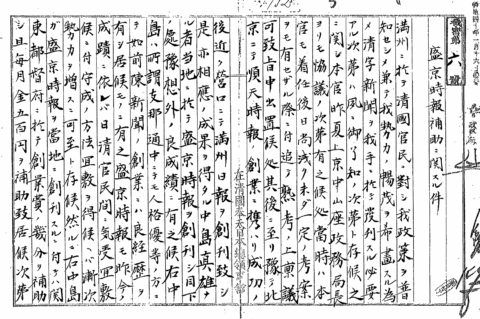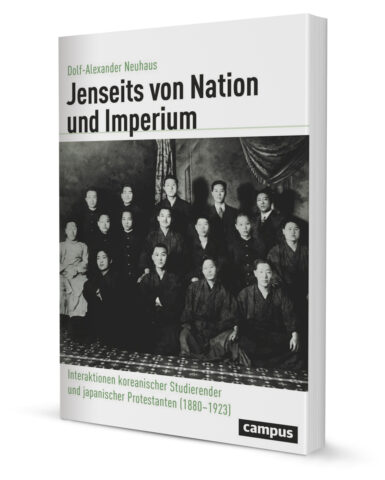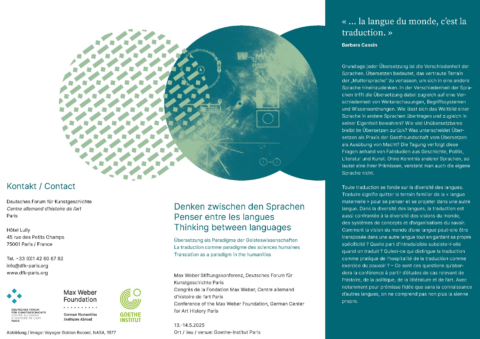Events and Activities
Hybrid DIJ Study Group on Japanese Private International Law

When evaluating cases involving legal relationships between private individuals with cross-border elements Japanese courts determine which jurisdiction’s law shall be applied to the legal relationship using a set of rules called “Private International Law”. Based on the “Savignian approach” to Private International Law, Japan strives to apply the law that it considers most closely connected to the specific legal relationship. In this context, the so-called Public Policy clause provides a crucial safeguard. If the application of foreign law results in a violation of “public policy and good morals,” this clause enables Japanese judges to exclude the foreign law from application. This presentation will analyze the doctrinal development and practical application of the Public Policy clause, illustrating under which circumstances and conditions Japanese courts invoke it. Details and registration here
Onsite Study Group on Imperial Press Policy in Northeast China

From the late Meiji era, the development of a China-based press network functional to the national interest became an integral part of Japan’s imperial agenda. After the defeat of Russia in the 1904-05 war, the Northeast, compared to other regions, offered to Japanese initiative more favorable conditions to achieve a dominant position in the media landscape. One of the most successful enterprises was the government-sponsored Shengjing Shibao, which became the largest newspaper in Fengtian (Shenyang). As a tool of foreign policy, however, press management suffered from the lack of unified decision-making among different agencies. This talk will present a case study to analyse Japanese imperial press policy as representative of the polycentric character of strategic planning in imperial Japan. Details and registration here
Book talk by Dolf Neuhaus on Japanese Colonial Rule in Korea

DIJ historian Dolf-Alexander Neuhaus will introduce his book Jenseits von Nation und Imperium. Interaktionen koreanischer Studierender und japanischer Protestanten (1880–1923) [Beyond nation and empire. Interactions between Korean students and Japanese Protestants, 1880-1923] at the next AREA Ruhr Book Talk on 25 June 2025, 10-11h CEST (in German). Drawing on a wide range of Japanese and Korean sources, the book examines how students and intellectuals discussed Japanese colonial rule in Korea and the ‘Korean question’ and how their exchange of ideas influenced Japanese and Korean perceptions of empire, nation, and East Asia. The book is published by Campus in the Global History series. Details and registration here
International Workshop on the Aging Challenge in Europe and Japan
 Economies in Europe and Asia are facing a “slow crisis” with a dual demographic shift: their population is expected to start contracting by 2050; the proportion of older adults is expected to surpass 30% by the same date. Japan is at the forefront of this change, having experienced already a decade of population decline while the share of the elderly is projected to reach 40%. Particularly challenging is the situation of the “oldest old” who are losing autonomy. The French-Japanese INNOVCARE consortium has introduced “care-led innovation” as a novel approach to reconcile social needs and technological dynamics. The one-day workshop Addressing the Aging Challenge in Europe and Japan – Insights from the INNOVCARE Project , organised by the European Institute of Sophia University, the EHESS, and the DIJ, brings together fifteen international scholars to discuss different perspectives on the aging challenge in Japan. The afternoon part of the workshop will be interpreted into Japanese and is open to the public. Details here
Economies in Europe and Asia are facing a “slow crisis” with a dual demographic shift: their population is expected to start contracting by 2050; the proportion of older adults is expected to surpass 30% by the same date. Japan is at the forefront of this change, having experienced already a decade of population decline while the share of the elderly is projected to reach 40%. Particularly challenging is the situation of the “oldest old” who are losing autonomy. The French-Japanese INNOVCARE consortium has introduced “care-led innovation” as a novel approach to reconcile social needs and technological dynamics. The one-day workshop Addressing the Aging Challenge in Europe and Japan – Insights from the INNOVCARE Project , organised by the European Institute of Sophia University, the EHESS, and the DIJ, brings together fifteen international scholars to discuss different perspectives on the aging challenge in Japan. The afternoon part of the workshop will be interpreted into Japanese and is open to the public. Details here
Online Study Group on Mediation of Deaf and Hearing Sign Language Interpreters in Japan

Sign language interpreting plays a crucial role in ensuring effective communication between Deaf and hearing individuals, particularly in highly specialized settings such as court hearings and psychotherapy sessions. However, interpreting in these fields presents unique challenges, as it requires not only linguistic skills but also the ability to navigate cultural nuances, emotional contexts, and diverse communication needs. This research project examines the practices of Deaf and hearing sign language interpreters in Japan, focusing on how they handle demands, interpret nuances, and adapt their interpreting strategies to individual Deaf sign language users. Key areas of investigation include the strategies employed by interpreters in the courtroom, psychotherapy sessions, conferences, and media, and how these strategies vary according to context and audience, as well as their adaptation to the linguistically and culturally diverse needs of Deaf sign language users. This presentation will outline the research project and offer a critical overview of the research methodology employed in the study. Details and registration here
DIJ researchers co-organise symposium ‘Loneliness as a Social Phenomenon’
 DIJ researchers Carolin Fleischer-Heininger and Celia Spoden will present their research related to loneliness and social isolation at the international symposium Loneliness as a Social Phenomenon: Cross-Cultural Approaches to a Human Condition. The symposium examines loneliness as a social phenomenon that has increased as a result of social transformations and structural changes. It brings together an interdisciplinary group of scholars and practitioners to explore loneliness and social isolation. To investigate both conditions, it takes a holistic and cross-cultural approach, and explores themes that connect theoretical understandings with practical application. Participants will share their expertise on the ambivalent role of digital technologies; civil-society measures to foster social inclusion; literary representations of loneliness; and the ethical implications of social fragmentation. In addition to academic presentations, the symposium includes an ethnographic film screening, a workshop, and a field trip to a local project addressing loneliness. The symposium takes place in Hanover from June 11 to 13 and is part of the theme week “(Tackling) Loneliness”, sponsored by the Volkswagen Foundation. Details here
DIJ researchers Carolin Fleischer-Heininger and Celia Spoden will present their research related to loneliness and social isolation at the international symposium Loneliness as a Social Phenomenon: Cross-Cultural Approaches to a Human Condition. The symposium examines loneliness as a social phenomenon that has increased as a result of social transformations and structural changes. It brings together an interdisciplinary group of scholars and practitioners to explore loneliness and social isolation. To investigate both conditions, it takes a holistic and cross-cultural approach, and explores themes that connect theoretical understandings with practical application. Participants will share their expertise on the ambivalent role of digital technologies; civil-society measures to foster social inclusion; literary representations of loneliness; and the ethical implications of social fragmentation. In addition to academic presentations, the symposium includes an ethnographic film screening, a workshop, and a field trip to a local project addressing loneliness. The symposium takes place in Hanover from June 11 to 13 and is part of the theme week “(Tackling) Loneliness”, sponsored by the Volkswagen Foundation. Details here
DIJ researchers at MWS Conference ‘Thinking between languages’
 DIJ researcher Nicole M. Mueller and DIJ director Franz Waldenberger will participate in this year’s foundation conference on the theme ‘Thinking between languages’ organised by the German Center for Art History Paris (DFK Paris) and the Max Weber Stiftung (MWS). Nicole Mueller will give a presentation on “Japan’s Translation Culture between Innovation and Subordination. Retraced through 15 Retranslations of Thomas Mann’s Tonio Kröger“, based on her research project Thomas Mann’s reception in Japan between cultural heteronomy and emancipatory impulses. Franz Waldenberger will be a panelist in the final discussion on ‘Simultaneous Interpretations: The Max Weber Institutes as Translators of Languages, (Academic) Cultures, Methodologies, and More’. The conference takes place at the Goethe-Institute Paris on May 13 and 14. Details here
DIJ researcher Nicole M. Mueller and DIJ director Franz Waldenberger will participate in this year’s foundation conference on the theme ‘Thinking between languages’ organised by the German Center for Art History Paris (DFK Paris) and the Max Weber Stiftung (MWS). Nicole Mueller will give a presentation on “Japan’s Translation Culture between Innovation and Subordination. Retraced through 15 Retranslations of Thomas Mann’s Tonio Kröger“, based on her research project Thomas Mann’s reception in Japan between cultural heteronomy and emancipatory impulses. Franz Waldenberger will be a panelist in the final discussion on ‘Simultaneous Interpretations: The Max Weber Institutes as Translators of Languages, (Academic) Cultures, Methodologies, and More’. The conference takes place at the Goethe-Institute Paris on May 13 and 14. Details here
Hybrid DIJ Study Group on Death and the Cat in Japanese Folklore

As in many cultures, the imagery of the cat in Japan is highly ambiguous: it is marked both as protective kami and ferocious yôkai that haunts the house and kills its owners to take on their shape. But Japan’s felines are also viewed as necromancers, soul stealers, body snatchers. This presentation will take a closer look at the cat’s strong association with death through the lens of the Kasha, a former Buddhist demon that took on the shape of a supernatural cat during the late 17th/early 18th century. Together with the well-known story complex of the “Neko danka” (Cat Parishioner) the motif of the body-snatching Kasha will serve as an example of how cats appear in the popular culture of the Edo period as a representation of Japanese folklore. Details and registration here





 Open Access
Open Access
